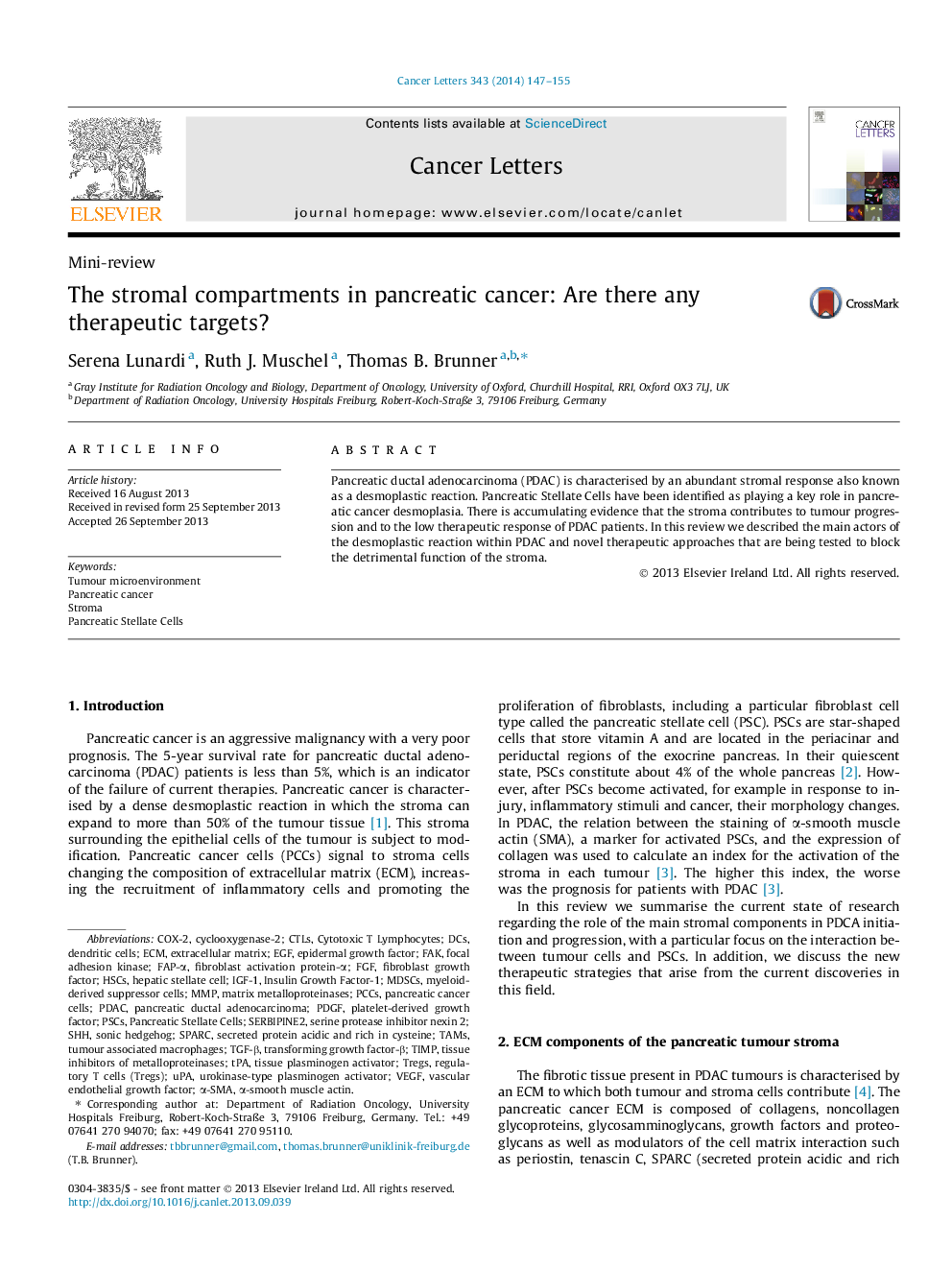| Article ID | Journal | Published Year | Pages | File Type |
|---|---|---|---|---|
| 10899801 | Cancer Letters | 2014 | 9 Pages |
Abstract
Pancreatic ductal adenocarcinoma (PDAC) is characterised by an abundant stromal response also known as a desmoplastic reaction. Pancreatic Stellate Cells have been identified as playing a key role in pancreatic cancer desmoplasia. There is accumulating evidence that the stroma contributes to tumour progression and to the low therapeutic response of PDAC patients. In this review we described the main actors of the desmoplastic reaction within PDAC and novel therapeutic approaches that are being tested to block the detrimental function of the stroma.
Keywords
TAMsFGFIGF-1FAKuPAMDSCsCOX-2HSCsDCstPASPARCTregsPSCsPCCsPDGFRegulatory T cells (Tregs)EGFMMPTGF-βα-SMAPDACECMCTLsPancreatic ductal adenocarcinomaStromaα-smooth muscle actintransforming growth factor-βShhTIMPPancreatic cancerHepatic stellate cellDendritic cellsPancreatic Stellate CellsPancreatic cancer cellsMyeloid-derived suppressor cellsCyclooxygenase-2sonic hedgehogInsulin growth factor-1epidermal growth factorVascular endothelial growth factorVascular Endothelial Growth Factor (VEGF)platelet-derived growth factorfibroblast growth factortissue plasminogen activatorurokinase-type plasminogen activatorCytotoxic T lymphocytesExtracellular matrixMatrix metalloproteinasesTissue inhibitors of metalloproteinasesTumour microenvironmentsecreted protein acidic and rich in cysteinefocal adhesion kinase
Related Topics
Life Sciences
Biochemistry, Genetics and Molecular Biology
Cancer Research
Authors
Serena Lunardi, Ruth J. Muschel, Thomas B. Brunner,
